
Like a Rock is the thirteenth studio album by American singer-songwriter Bob Seger, released in 1986. The title track is best known for being featured in Chevrolet truck commercials throughout the 1990s and early 2000s.

The Gap Band was an American R&B and funk band that rose to fame during the 1970s and 1980s. The band consisted of three brothers: Charlie, Ronnie, and Robert Wilson, along with other members; it was named after streets in the historic Greenwood neighborhood in the brothers' hometown of Tulsa, Oklahoma.

Throwin' Down is the 6th studio album by Rick James, released in 1982 via the Gordy imprint of Motown Records. It peaked at No. 13 on the Billboard 200. Although not as popular as Street Songs, Throwin' Down is certified gold by the RIAA. It was nominated for an American Music Award for Favorite Soul/R&B Album.

Famous Blue Raincoat: The Songs of Leonard Cohen is the sixth studio album recorded by the American singer Jennifer Warnes. It debuted on the Billboard 200 on February 14, 1987, and peaked at No. 72 in the US Billboard chart, No.33 in the UK albums chart, and No.8 in Canada. Originally released by Cypress Records, it was reissued by Private Music after Cypress went out of business. It is the only Jennifer Warnes album to make the UK albums chart.

Rain Dances is the fifth studio album by English progressive rock band Camel. It was released in 1977 on Gama Records/Decca Records, and brought a major change to the band's lineup, by replacing bassist Doug Ferguson with ex-Caravan member Richard Sinclair and by adding saxophonist Mel Collins, formerly of King Crimson.

Ain't Nothin' Stoppin' Us Now is an album by Tower of Power released in 1976, the band's first record on Columbia Records. Ron Beck takes up the drummers spot after David Garibaldi exited for a second time.

I Can See Your House from Here is the seventh studio album by English progressive rock band Camel. Released in 1979, a new line up was introduced with founding members Andrew Latimer (guitar) and Andy Ward (drums) joined by bassist Colin Bass and keyboardists Jan Schelhaas and Kit Watkins who replaced Dave Sinclair. At one point, the album was going to be called Endangered Species.

Naughty is the second solo album by American R&B and funk singer Chaka Khan, released on Warner Bros. Records in 1980.
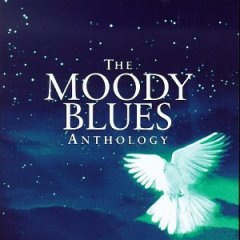
Anthology is a compilation album by the progressive rock band the Moody Blues. It was released in the US on 20 October 1998. It was not released in the UK until 2001 under the title The Collection with different artwork but with the same tracks as the US release.

Through the Storm is the thirty-second studio album by American singer Aretha Franklin. It was released on April 25, 1989, by Arista Records.

Chaka Khan is the fourth solo album by American R&B/funk singer Chaka Khan, released on the Warner Bros. Records label in 1982.

Gloria Gaynor is the tenth studio album by Gloria Gaynor and her only to be released on Atlantic Records after her contract with Polydor Records expired. The lead single release was a cover of The Supremes' "Stop in the Name of Love", followed by the singles "America" and "Tease Me". The album failed to garner much attention in either the U.S. or in Europe. It was re-released on CD by Hot Productions in 1997 with two previously unreleased re-recordings of "I Will Survive", added as track 1 (3:35) and a 5:03 Extended Mix as track 10. The album was reissued on 2014 by BBR Records, and did not include the re-recorded versions of "I Will Survive", although the extended version can be found on countless compilations by Gaynor over the years. Instead were included the single versions of "Stop in the Name of Love", "America" and "Tease Me", as well as the 12" disco version of "Stop in the Name of Love".

Roberta is Roberta Flack's fourteenth album, released in 1994. It consists of cover versions of jazz and soul standards. It was also her final album for Atlantic Records after twenty five years with the label since her debut.

Funk of Ages is a solo album by former Parliament-Funkadelic keyboardist Bernie Worrell. The album was released in 1990 by Gramavision Records. It includes contributions by numerous guest musicians, including Sly and Robbie, David Byrne, Herbie Hancock, Keith Richards, Vernon Reid, and Phoebe Snow. P-Funk bandmates Bootsy Collins, Maceo Parker, Gary Cooper, Doug Duffey, and Michael Hampton also contributed.

Gittin' Down is the second album release for the Los Angeles, California -based band L.T.D.
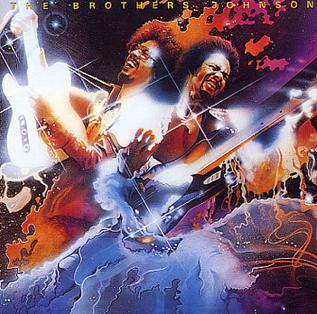
Blam! is the third album by the Los Angeles-based duo Brothers Johnson. Released in 1978, the album topped the Billboard R&B albums chart and reached number seven on the pop albums chart.
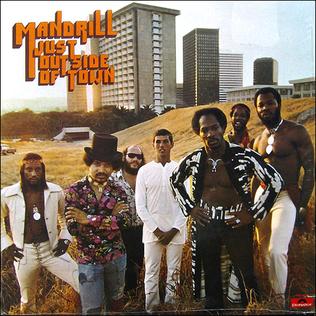
Just Outside of Town is the fourth album by the Brooklyn-based soul/funk band Mandrill. Released in October 1973 on Polydor Records, the album reached No. 8 on the Billboard Top Soul Albums chart.
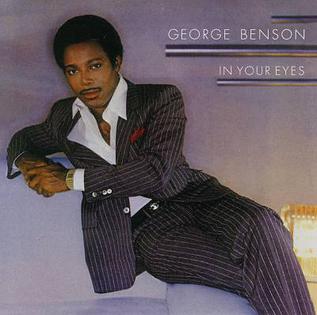
In Your Eyes is a 1983 album by George Benson. It is his only album produced by producer Arif Mardin. It includes the hit "Lady Love Me ". The title track would later be covered by Jeffrey Osborne for his 1986 album Emotional.
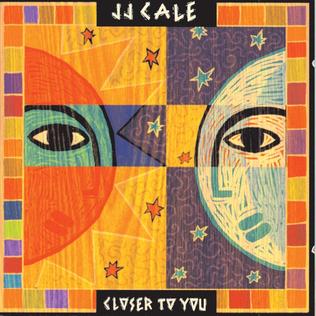
Closer to You is the 11th studio album by J. J. Cale, released in 1994. It was published under the independent French label Delabel and distributed by Virgin Records.
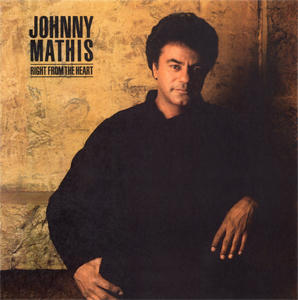
Right from the Heart is an album by the American pop singer Johnny Mathis that was released on March 18, 1985, by Columbia Records. It was his first album without songs that were previously recorded by other artists. The title track is one of the album's four ballads that, along with four of the remaining six up-tempo tracks, delve into the subject of relationships, but it is the synth-driven "Step by Step" and the anthemic "Hold On" on which Mathis take a break from the usual focus on love songs. The former offers the hope that can be found in change that comes gradually until "I can see the way free from yesterday to a new beginning". The latter stresses the importance of being oneself: "Life is a party. Why don't you come the way you are?"



















